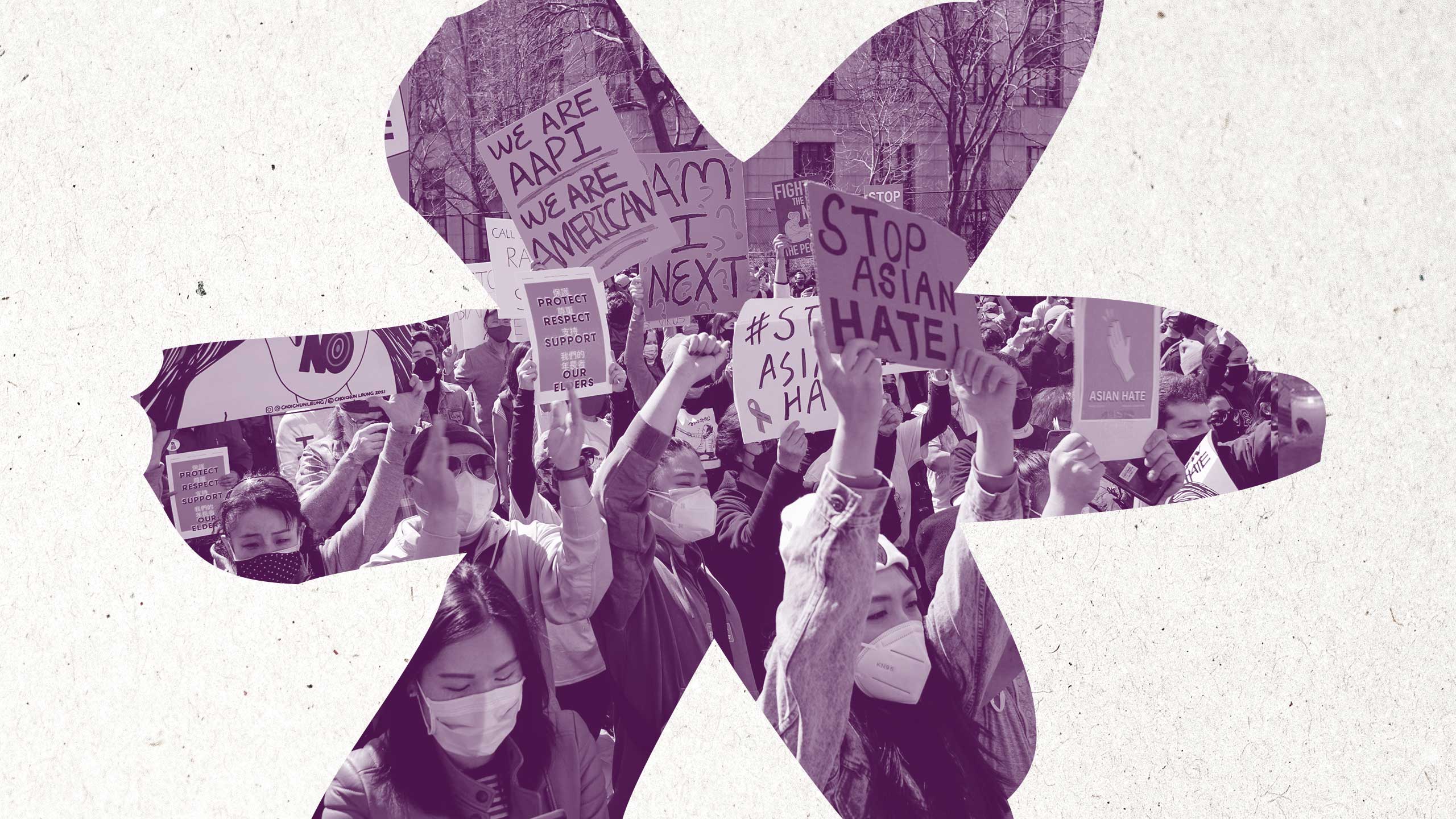Hi, everyone. It’s editorial director Rachel Giese, and I’m bringing you this edition of the Xtra Weekly newsletter and “Topline,” where the Xtra team shares some of our thoughts as we cover and react to the news of the week. For more insights and for a roundup of LGBTQ2S+ news and culture from around the world, sign up to get the full newsletter delivered to your inbox every Friday.

The past week has been filled with tremendous grief and anger, but also marked by people coming together to take a stand against violence and hate. There’s a lot to talk about, so let’s get to it.
What’s the buzz🐝?
Last week, a 21-year-old white gunman targeted three massage parlours in Atlanta, Georgia. He killed eight people, including six Asian-American women.
These deaths occurred during a year where there’s been a terrifying escalation in racist attacks against East Asian people—in particular women. On its website, the U.S. organization Stop AAPI Hate has tracked reports of hate-based attacks. Its findings? Nearly 4,000 racist incidents against Asian Americans in 2020, mostly against women. In New York City alone, police data has shown a 1,900 percent increase in anti-Asian hate crimes in the past year.
In Canada, two surveys counted more than 1,000 occurrences of attacks against Asian people during the same time period, ranging from verbal slurs and being coughed or spat on to physical assaults and vandalism. Sixty percent of the victims were women.
Reeling once again from an act of terrible, racist violence, Asian people and allies have taken to the streets at vigils and protests to demand an end to anti-Asian hate.
What were we thinking✊🏼?
Almost immediately after the novel coronavirus was identified in Wuhan, China, in December 2019, it was deliberately racialized. The most prominent perpetrator was former U.S. president Donald Trump, who referred to it as the “China virus” and “kung flu.”
This fear-mongering rhetoric isn’t new: Marginalized groups have routinely been associated with disease (consider how, in the 1980s, “homosexuals and Haitians” were blamed for AIDS). And the consequences remain devastating. Asian people, including the elderly, have been verbally and physically assaulted. Asian grocery stores, restaurants and other businesses have been shunned and vandalized. “To live through this period as an Asian-American,” Jiayang Fan wrote recently in the New Yorker, “is to feel defenseless against a virus as well as a virulent strain of scapegoating.”
This story, though, begins much further back. As Asian journalists, activists and community leaders have noted, anti-Asian discrimination is embedded in the history of the U.S. and Canada: In Chinese exclusion acts; the internment of Japanese Canadians and Japanese Americans during World War II; the dehumanizing portrayals of Asian people in Western popular culture (or the utter absence of representation); and in ongoing hostilities and acts of othering—from fetishizing sexual stereotypes and the model minority myth to mispronounced names and demands to know “but where are you really from?”
The murders of six Asian women at the Atlanta massage parlours brought all these histories—of xenophobia, racism, misogyny—into sharp relief. And the attacks have also revealed the degree to which sex workers, those adjacent to sex work or those perceived to be involved in it, continue to be vulnerable to harm and violence. As with so many low-wage workers in service industries, they are denied the most basic forms of employment protections while being threatened for the very work they do.
While anti-migrant laws, anti-trafficking initiatives and the criminalization of sex work increase the risk of violence, fear of authorities prevents many women who have been victimized at work from seeking help (this is especially true for those who are undocumented). Meanwhile, policing efforts said to be for the protection or “rescue” of sex workers are, in reality, often intended to punish these workers and drive them further into isolation. It’s worth noting that two of the places targeted by the killer have reportedly been the subject of several anti-sex work raids by police. And still, all this police attention failed to keep the eight people who died last week safe.
To be clear: Not all massage parlours offer sexual services, and it’s not known if any of the women killed in Atlanta ever engaged in any form of sex work. Even the suggestion that they could have been is fraught for many people, due to the racist hypersexualization of Asian women and the stigma surrounding sex work.
But that stigma is precisely why the rights, safety and humanity of sex workers must be included in any community-based response to these attacks. Rarely are sex workers afforded the dignity or agency given to other workers, and rarely are sex workers’ voices heard in mainstream conversations on issues such as racism, xenophobia, sexism and hate crimes.
Yet sex workers have long been at the forefront of social change, as anti-violence activists and as organizers of community care and safety networks. They have an abundance of knowledge and insight to share, and deserve to be heard now, more than ever.
If you’re looking to support organizations doing work in these communities and on these issues, here are a few to check out:
Butterfly Asian and Migrant Sex Workers Network
Asian American Legal Defence and Education Fund
Chinese and Southeast Asian Legal Clinic
In other Xtra news🌎
👉In a landmark decision, Quebec’s highest court ruled that bureaucratic obstacles related to legal name changes and official designations of sex were unconstitutional. Contributor KC Hoard explains what this means for trans and non-binary people in the province.
👉In this week’s “Ask Kai” column, Kai Cheng Thom advises a so-called sellout on how to deal with people who are dragging them into conflict and, instead, build boundaries within their community.
👉Contributor Harron Walker explores how Melissa Broder’s latest novel, Milk Fed, queers—and redeems—the Manic Pixie Dream Girl trope through its delightfully deranged exploration of sex, food and faith.
👉Thomas Leblanc and Tranna Wintour have launched “Lucky Stars,” a monthly comedy series highlighting queer icons from each astrological sign. First up is Aries and a roasting of audacious rams: Celine Dion, Mariah Carey and Lady Gaga.
👉Gay advice columnist Dan Savage was back in the news this week after defending controversial journalist Jesse Singal on Twitter—and subsequently reminding the internet of his past transphobia.
👉Want more headlines? Subscribe to Xtra Weekly.
Gifbox
Stanning Sandra Oh forever:



 Why you can trust Xtra
Why you can trust Xtra


